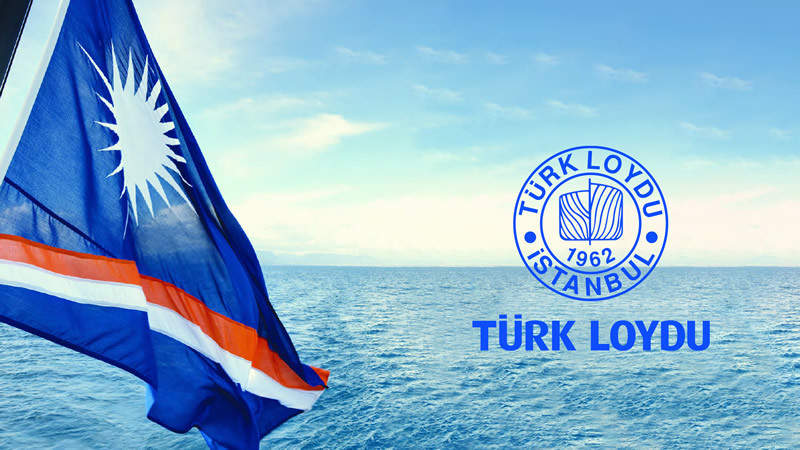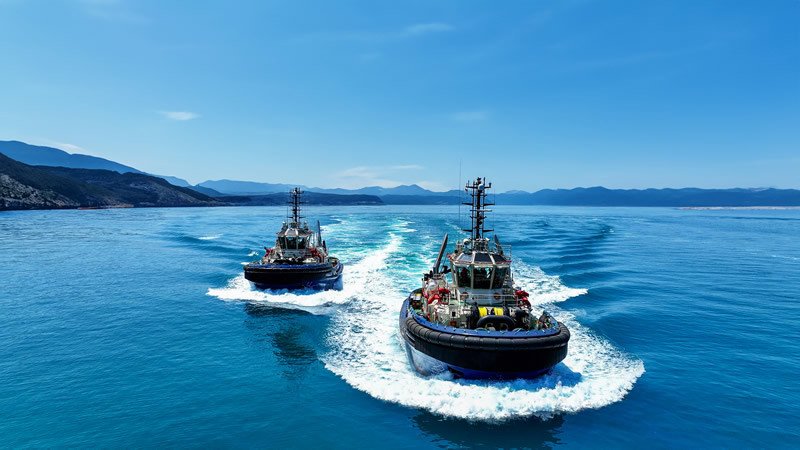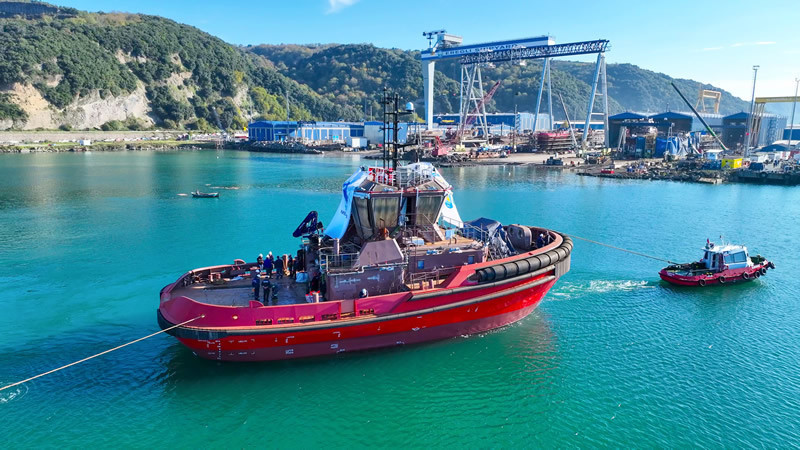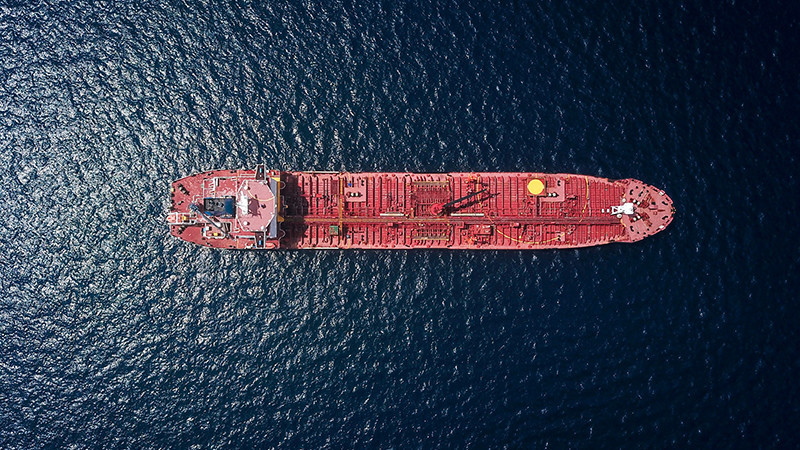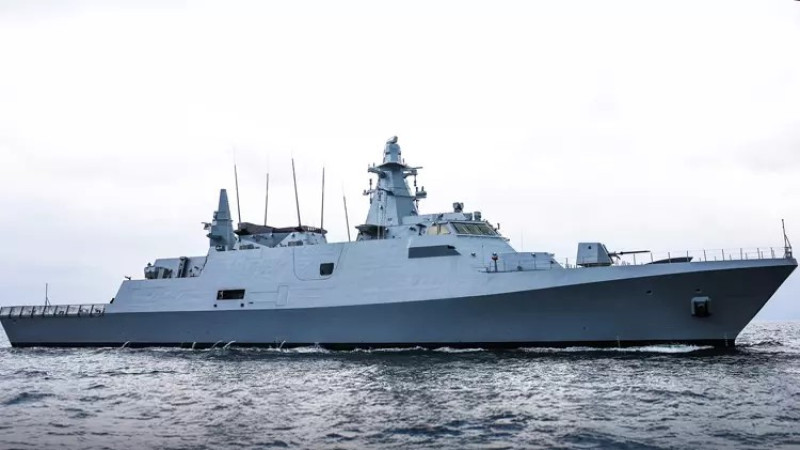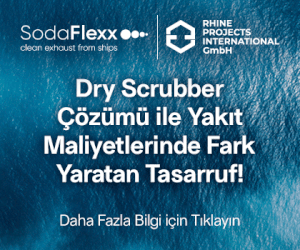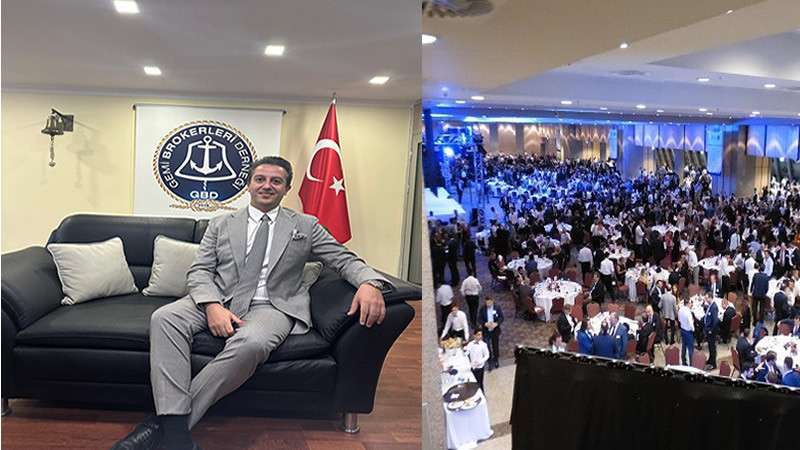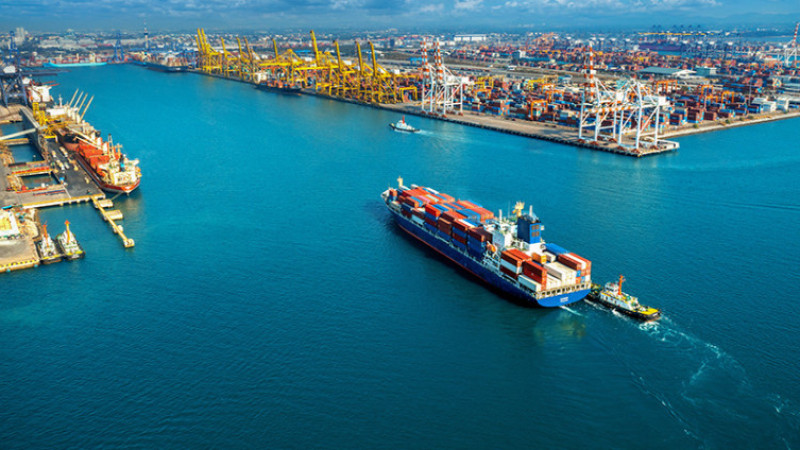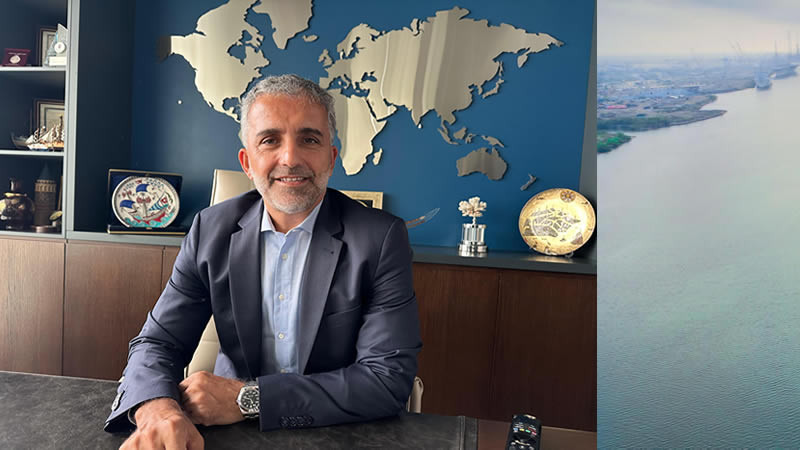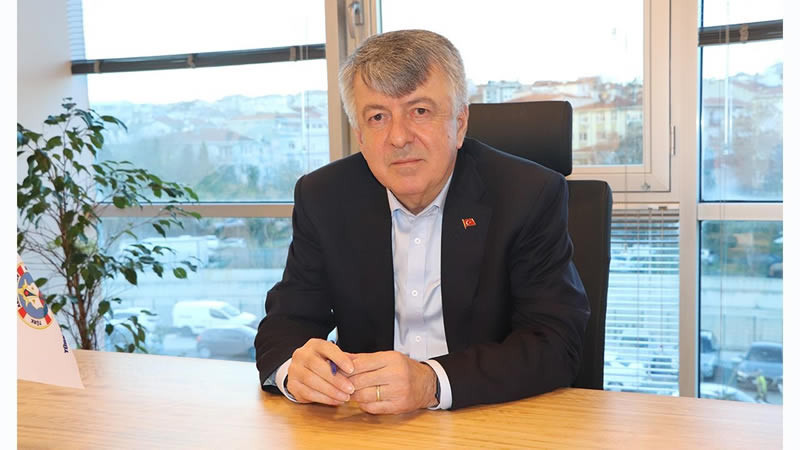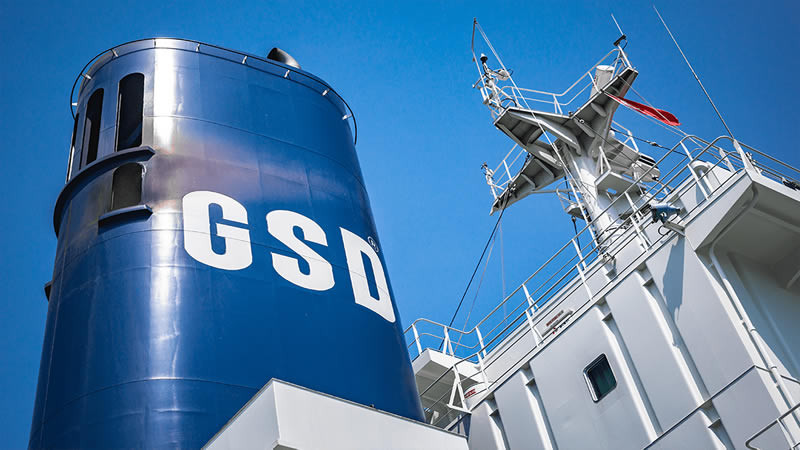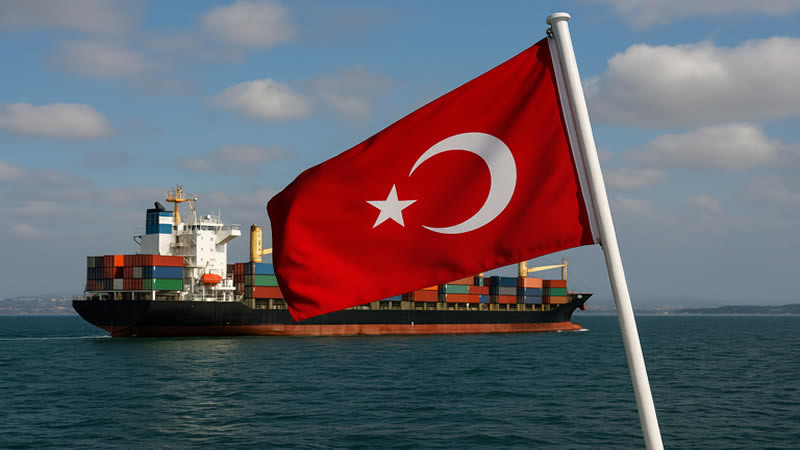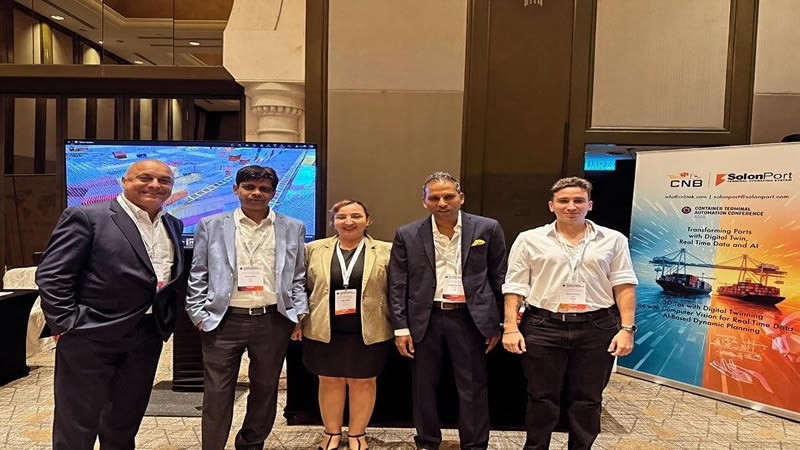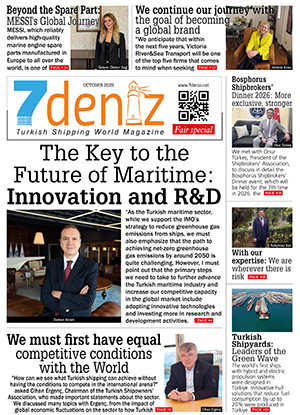There are times ahead for shipowners to pay close attention
We carried TURMEPA Chairman of the Board of Directors Şadan Kaptanoğlu to our lines..."IMO has set a target of reducing CO2 emissions from international shipping by at least 50% by 2050 compared to 2008 levels and reducing carbon intensity by 40% by 2030.
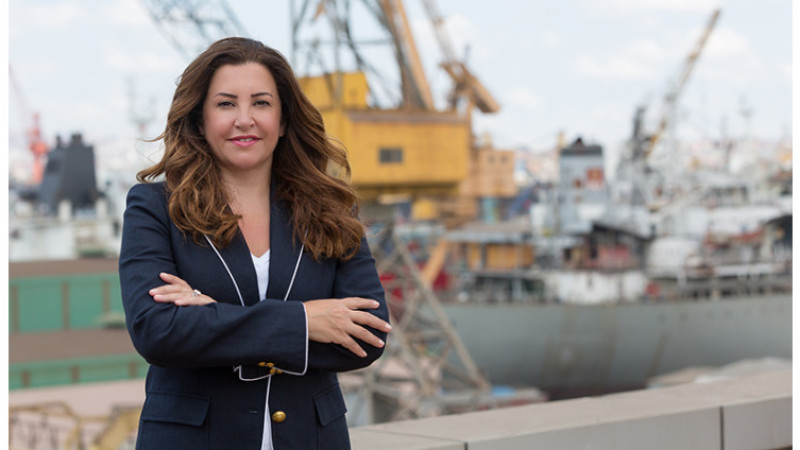
We carried TURMEPA Chairman of the Board of Directors Şadan Kaptanoğlu to our lines... "IMO has set a target of reducing CO2 emissions from international shipping by at least 50% by 2050 compared to 2008 levels and reducing carbon intensity by 40% by 2030. While the EEXI and CII regulations that come into force as of 2023 will radically change the way shipping is done, this change will be reinforced with the ETS European Union Carbon tax that will enter into force in 2024. There are times ahead for shipowners to pay close attention." I see the maritime sector as a leading sector that embraces change and takes the necessary steps, and I hope that it will be an example to all sectors.
We know that TURMEPA has very valuable projects related to the environment, especially our seas. We'd like to start with that first...
TURMEPA is an association that was founded in 1994 with the support of sea-loving businessmen under the auspices of Rahmi M. Koç and has implemented numerous projects with the public and private sectors to protect our marine and water resources for 29 years. In the establishment of TURMEPA, we are talking about a great vision that foresees the future. TURMEPA is the only sea-oriented non-governmental organization of our country that makes a difference with its education, volunteering and awareness activities whose foundations were laid with this vision. When I took office, it had grown with the efforts of our esteemed elders and past rulers, and its influence had reached all corners of our country in waves. In addition to our eight branches, our association continues to work to reach more people through training activities by developing cooperation with Fethiye and Samsun Coastal and Marine Investigation Centers and local governments, relevant NGOs and public institutions. Through our conservation, education and awareness projects, we work for the protection of the seas across the country with our members and volunteers. With the protocols of the Ministry of National Education, we provide environmental trainings in 81 provinces, carry out marine protection and cleaning activities with our liquid waste collection boats and sea sweepers, and contribute to increasing social awareness with coastal cleaning activities. In addition, we take an active role in solving the climate crisis and current environmental problems.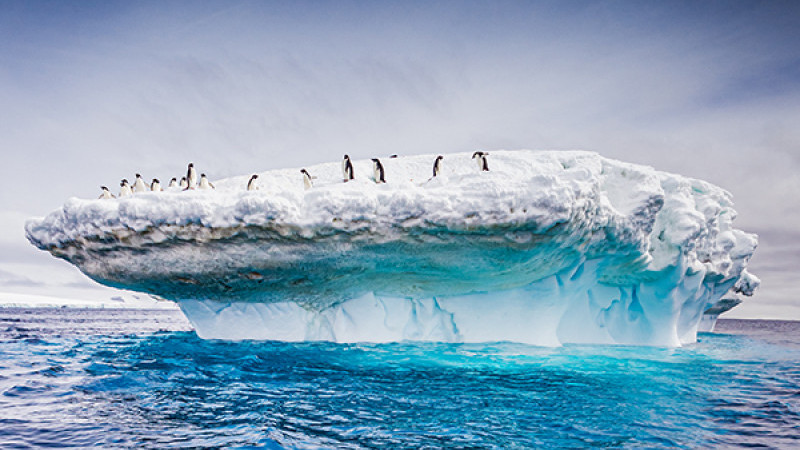
To summarize the progress we have made in 29 years, I would like to share with you some figures that are a source of pride:
- We have reached 9 million people with our marine and environmental trainings.
- We collected 47 million liters of liquid waste with our waste collection boats,
- We prevented 2 million 770 thousand kilograms of solid waste from entering the seas,
- The number of our volunteers has reached 11 thousand,
- 53 million were reached through TV programs, public spots, print media and billboards.
We are proud of all these achievements, but we are not satisfied. The seas are our source of life. We still have a lot of work to do to leave a blue future for our children. For this reason, we continue to walk arm in arm with our state, our people and the private sector and continue this struggle.
The climate crisis is affecting our lives more than ever before. Can you share your views on this?
One of the biggest problems that the world is paying attention to is undoubtedly the climate crisis and its consequences. The disasters we have experienced as a result of the climate crisis, which has raised the alarm as a global problem, show that we need to face this problem urgently. In order to find a solution, it is imperative that states, public and private sectors, non-governmental organizations and individuals act collectively.
Unfortunately, as humanity, our environmental report card is not good. Our consumption habits and preferences threaten the health of our planet. Due to the consumer society we have created in the last century and our produce-use-dispose policy, we have left very destructive effects on nature. We have invaded the natural habitats of living things. We saw nature as a competitor and tried to beat it. We live as if we have another planet at our disposal. We use more than 50% of the resources the world can provide. If we don't change direction, this rate will increase rapidly, and in 2030 even two planets will not be enough. Unfortunately, we are paying the bill of this order very heavily. We must not forget, we are not the owners of nature, we are a part of it. Nature needs us, but we need nature to live. If we get rid of the delusion that we can dominate nature and act immediately, we still have a chance to do good.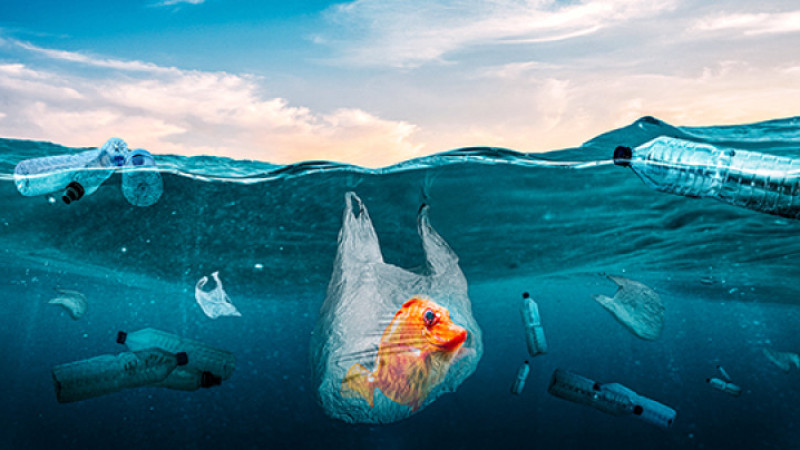
Although the picture at the moment is bad, we should not be desperate. If we join hands together, we can live in a better world. For this, we must work both individually and socially. To change this bad trend, we must first make a new beginning in our relationship with nature. We should forget what we used to know and change our consumption habits. We must listen to the voice of nature and start working for tomorrow today. We must put an end to the produce-use-dispose order. Our nature and seas should be on everyone's agenda, not just a sector or a segment. It is necessary to move forward in the direction of the common goal. Therefore, we need to take some steps personally outside the sector. I always emphasize this. We are not the first generation to pollute the seas, but we may be the last generation to save it. Our source of breath, our seas as the source of life give us duties and responsibilities, and it is our common responsibility to leave it to the future and to our children in the most beautiful way.
How should we proceed for a radical and permanent solution to the climate crisis? Could you also share the progress of the projects you have carried out in this regard?
For radical solutions, our government, local governments, private sector and non-governmental organizations should join forces. We are in a crisis in which the whole world is affected by individuals, families, different business lines and sectors. As you point out, the climate crisis is not only the responsibility of certain sectors or only the state. We all have a responsibility to fight the climate crisis and protect ecology.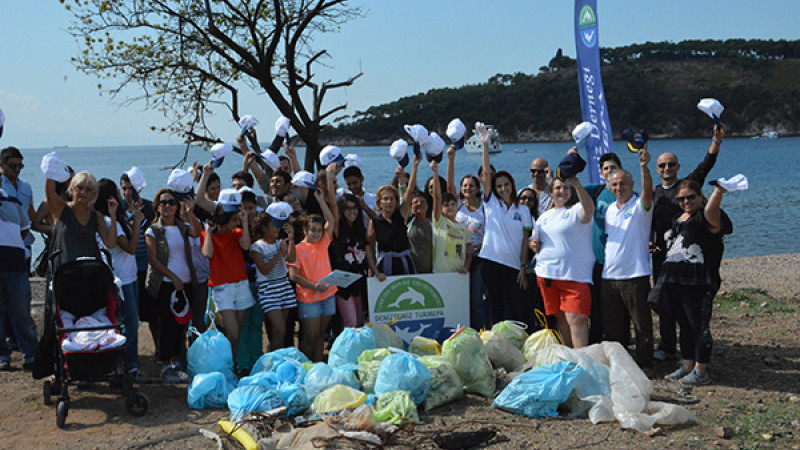
At this point, when we look at the 29-year history of TURMEPA, of course we have dozens of projects. But I can easily say that in these recent years when the climate crisis has escalated, our project Zero Waste Blue, in which we have reflected all our experience in a holistic way and we have achieved very positive results, has been Zero Waste Blue. We started our project from the Bosphorus in 2019. It was a project that we started with our state, local governments, our people, the private sector and most importantly, our children and young people, who are our future. We have started the "Zero Waste Blue Transformation" through the Bosphorus. On that day, we made a promise together: "Zero Waste Blue". This transformation was a journey that each of us as individuals, institutions and local governments would increase our awareness with the aim of protecting our seas, waste would be prevented, our national wealth would be recovered, and we should all embark. And it did. So, what have we achieved with Zero Waste Blue and where are we. First of all, we added the sea to Zero Waste as a first. That is, blue. This was TURMEPA's idea, it was accepted and spread throughout our country.
Since then, Zero Waste Blue has grown by creating a wave effect like a stone we throw into the sea and continues to increase its impact. Not only from the coastal provinces; We have seen zero waste blue banners unfurled in lakes and rivers from all our provinces. With coastal cleaning, dredging activities and awareness activities, all our people, institutions and local governments have been with us. Again, with our Zero Waste Blue trainings, we have worked to spread to all our people that there will be no green without blue. Following the implementation of this project, we have developed our cooperation with the Ministry of National Education with the aim of making a difference through education and providing a radical change. Thus, we started to provide free "Zero Waste Blue" trainings to all age groups in all schools across the country. Since June 2019, we have trained more than 100,000 students and thousands of teachers on the importance of the seas, the marine ecosystem, biodiversity in our seas, the climate crisis, Zero Waste, Zero Waste Blue and our individual responsibilities for a better environment. In the coastal and environmental cleaning activities carried out in different provinces under the leadership of TURMEPA, 100 thousand tons of solid waste was prevented from entering our seas with nearly 10 thousand volunteers of children, young people and adults. Upon the insistence of TURMEPA, we have made the Ministry open a separate section in the Zero Waste Blue Guide on the measures to be taken against marine pollution. Thus, a separate chapter was written for the seas of the highest order. We have done this as TURMEPA. All these achievements have brought us a very important award and we have been deemed worthy of a special award from the Ministry of Environment, Urbanization and Climate Change.In order to achieve all these successes, we have received the support of our state, our people and the private sector; Because neither the material nor the moral power of an institution or a single person will be enough to protect the seas and produce sustainable solutions. As TURMEPA, we have carried out many projects with our ministries, municipalities and various stakeholders and touched the lives of millions of people.
Blue Breath Project
Another project of ours that followed Zero Waste Blue was the Blue Breath Project. Three years ago, we set out with Mavi Nefes, Garanti BBVA against the mucilage covering the Marmara. The project was launched at the end of 2021 and our two sea sweepers became operational in the Bosphorus. Last summer in Adrasan, one of our waste reception boats collected 2,500 tons of liquid waste, and in recent weeks we have sent a new sea sweeper to Van. We have created the education and awareness section to reflect the impact of the project in the coming years. We have launched an online training offensive in Istanbul, Kocaeli, Bursa, Çanakkale, Tekirdağ, Balıkesir and Yalova in seven provinces surrounding the Sea of Marmara. We provide online trainings on environmental and marine protection, climate change. Our goal is to reach 60,000 students in these regions in three years. There is also a mobile part of the project: the Blue Breath Training Bus. With this bus, we visit the seven provinces I have mentioned one by one for a week and give our children marine training with robotic coding and production skills workshop and teach them to protect our blues. We see that with Blue Breath, we continue to give the best example of joining hands as our institutions, the state and NGOs against the climate crisis.
At this point, we would like to mention the projects you carry out as TURMEPA for the protection of our seas...
As TURMEPA, we have been working with great devotion for our three seas and Lake Van for years, and we have implemented many firsts in this direction. But there is one of them that is unique in the world. TURMEPA has a fleet that has been serving in the South and Aegean coasts of our country for more than 16 years. A total of nine waste collection boats, including two new additions to our fleet this year, collect wastewater from thousands of yachts, motoryachts and tour boats. To date, we have prevented more than 47 million liters of black and grey water from entering our seas with our liquid waste reception service. As a non-governmental organization, of course, we can operate our boats with the support of our sponsors. We know that the success of a project depends on it being sustainable and long-term. Boat sponsorships are a great example of this. Institutions such as Arkas Holding, Sanko Energy and Tüpraş have been supporting our boats by adopting them for many years. Exemplary projects like this breathe life into our seas and protect our national wealth and seas. As an association that brought the first sea sweeper to Turkey in 1997 to set an example, the area of our cleaning activities on the sea surface is expanding day by day. On the other hand, we also focus on developing scientific projects for the conservation of biodiversity. We are targeting new projects that we have developed hand in hand with our universities in the direction of monitoring, cleaning and protection on the seabed. Thus, we will continue to embrace all our water resources and seas.
Finally, as a sailor, what awaits maritime? What kind of change are we facing and how should sailors prepare for this change?
As a seafarer, I am aware that we owe a lot to the seas and I care deeply about working for the health of our seas. Therefore, I put the task I undertake in TURMEPA in a very important place. During my presidency of BIMCO, the Baltic and International Maritime Council, the umbrella organization of world shipping, my focus was on the environment for two years. Maritime is a sector that backs the entire world economy and undertakes all sectors with a domino effect. It continues to take forward steps from many sectors in the field of environment. Because one of the most important parts of the fight against the climate crisis is to reduce carbon emissions. Rapid decarbonisation is vital to meeting the Paris Agreement's climate change targets, and of course this is also true for international shipping. For the maritime sector, the fight to protect the seas and ecosystems is of vital importance. International maritime transport is currently responsible for around 2% of the world's human-caused CO2 emissions. The International Maritime Organization (IMO), the global regulator of shipping, broke new ground by setting an absolute target for emissions reductions to support the United Nations Sustainable Development Goals and the Paris Agreement climate goals. International shipping is the first global sector to take the global climate crisis seriously. The IMO has set a target of reducing CO2 emissions from international shipping by at least 50% by 2050 compared to 2008 levels and reducing carbon intensity by 40% by 2030. While the EEXI and CII regulations that come into force as of 2023 will radically change the way shipping is done, this change will be reinforced with the ETS European Union Carbon tax that will enter into force in 2024. There are times ahead of us when shipowners need to pay close attention.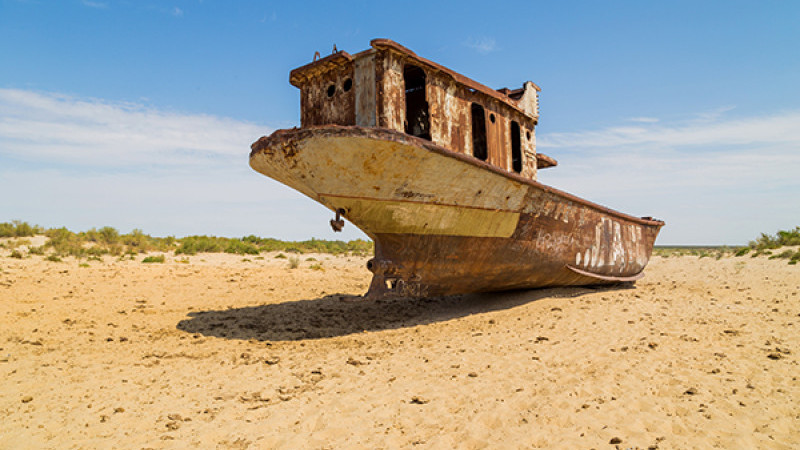
While these regulations are pushing the industry to meet targets, they require new zero-carbon technologies such as green hydrogen and ammonia, fuel cells, batteries and synthetic fuels produced from renewable energy sources for the actual zero emissions target. This technology does not yet exist in a form that can be applied to large commercial ships, especially those that make transoceanic voyages and are currently dependent on fossil fuels. But we see that in the next 20 years, all types of fuel will change. Fossil fuels will no longer exist. Maybe gas as a bridge, hybrid models will come. In fact, in 30 years, these solutions will be so developed that ships will use whatever fuel is available at the port they are going to. In short, a very, very big change awaits us. As an active member of the business world and an environmentally conscious individual, I say that there is only one truth. It is imperative that we focus on the fight against the climate crisis with all our strength, not only in the maritime, A or B sector. We have to meet the requirements of the Paris Climate Agreement as a whole before tomorrow is too late. I see the maritime sector as a leading sector that embraces change and takes the necessary steps, and I hope that it will be an example to all sectors.
From: 7deniz Magazine




